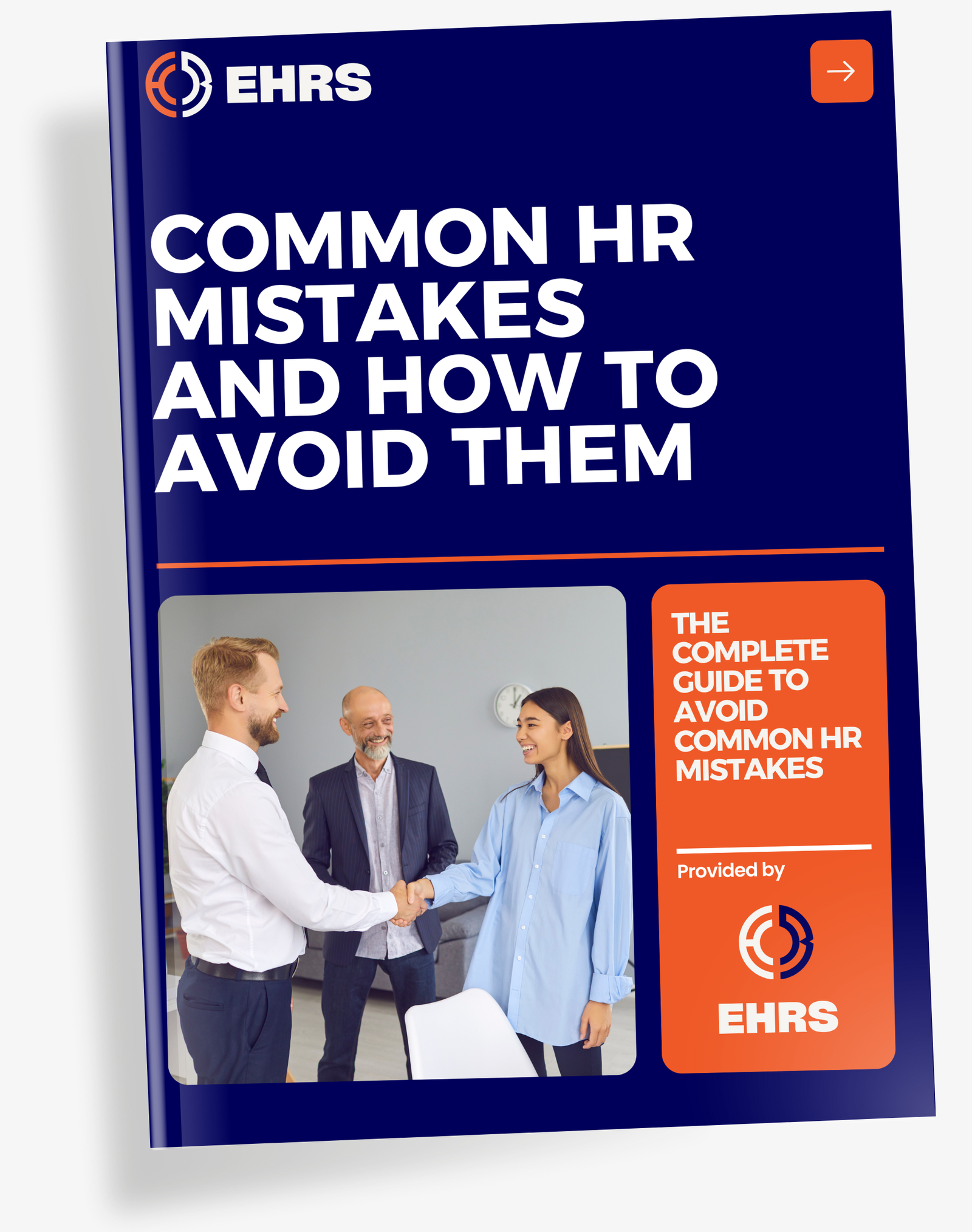Expanding a US business to Europe introduces difficult HR compliance requirements, from navigating diverse labor laws to ensuring GDPR adherence. This guide addresses important areas like employment contracts, data protection, and termination practices, tailored for companies entering the European market. Discover a structured checklist to mitigate risks and align operations with regional regulations efficiently.
Employment Contracts
European employment contracts differ significantly from US practices. While US companies often use “at-will” employment allowing termination without cause, European contracts require formal written agreements with specific protections. These contracts must include job descriptions, salary details, working hours, and termination procedures. The formalization ensures employee rights are protected under national labor laws.
Mandatory clauses in European contracts include job title, workplace location, start date, compensation, benefits, annual leave entitlements, and notice periods. Unlike US practices where oral agreements may suffice, European countries require written documentation. Some jurisdictions mandate contracts in local languages for legal enforceability, adding translation requirements for international employers.
Fixed-term contracts (CDD) have strict limitations compared to permanent contracts (CDI).
For example, France allows maximum 18 months with three renewals, while Germany permits 24 months under specific conditions.
Spain restricts CDDs to 3 years for training roles.
These contracts must convert to permanent positions after these thresholds unless specific exceptions apply under national labor codes.
Probation periods vary across Europe.
France permits 4 months for entry-level roles and 8 months for executives.
Termination clauses require clear documentation of performance issues or mutual agreement.
Employers must notify social security authorities and specify severance payments.
Most jurisdictions cap notice periods at 8 weeks while maintaining equal treatment principles during contract termination.
Remote work contracts need additional clauses addressing jurisdiction selection, expense reimbursement, and equipment provisions. Companies must specify applicable labor laws when employees work across borders. Contracts should include reversibility clauses allowing transition back to office work, while ensuring compliance with local data protection regulations and health & safety requirements.
- Control over work methods: Company-imposed schedules, training, supervision, and fixed work hours signal employment status
- Integration into operations: Use of company equipment, on-site presence, and participation in company events blur contractor lines
- Economic dependence: Sole income reliance on one company and restrictions on working with other clients increase misclassification risk
- Limited autonomy: Absence of independent business decisions and restricted flexibility in work execution
Worker Classification
European law defines employee status through subordination, economic dependence, and integration into company operations. Independent contractors maintain autonomy over work methods, bear business risks, and operate under minimal employer control.
Unlike US practices focusing on control metrics, European jurisdictions prioritize worker vulnerability and social protection principles when determining employment classification.
Misclassification risks include retroactive social security contributions, fines up to 4% of global revenue, and criminal penalties in jurisdictions like Spain and other European countries.
Companies face back-pay liabilities, legal disputes, and reputational damage. Regulatory enforcement intensified after 2023 EU platform work directive, mandating stricter worker status verification for digital businesses operating across member states.
Germany recognizes “scheinselbständigkeit” classifications with severe penalties.
The UK maintains “worker” status between employee and contractor categories.
France prohibits multi-contract relationships with single clients exceeding 18 months, while Belgium introduced “co-contracting” frameworks for platform workers under 2024 labor reforms.
Contractors should maintain client diversity, set independent rates, and control work schedules.
Contracts must specify deliverables rather than time commitments.
Businesses should consult labor lawyers when structuring payment terms and avoid providing company equipment or enforcing attendance policies to maintain contractor status.
Some companies choose to go with EOR services, that can act as legal employers, assuming payroll, tax, and compliance responsibilities but for some cases, EOR is not sufficient.
Making sure the company is compliant by consulting experts, eliminates misclassification risks by establishing formal employment relationships under local laws.
US companies retain operational control while EOR partners or HR experts handle statutory obligations, collective agreements, and termination procedures across multiple European jurisdictions.
Work Hour Regulations
European labor laws establish strict work hour limits.
The Working Time Directive mandates 48-hour weekly limits including overtime, 11-hour daily rest periods, and 24-hour weekly breaks.
Countries like Germany enforce additional protections through national legislation, while France maintains a 35-hour standard workweek. These regulations prioritize worker well-being across diverse employment contexts.
Mandatory rest periods require 20-minute breaks after six continuous work hours. Daily rest periods span 11 hours minimum, with weekly rest extending to 24 hours. Finland averages 37.4 work hours weekly, contrasting Spain’s 41.3-hour average.
Compliance ensures balanced work-life integration while accommodating sector-specific exemptions for essential services and rotating shifts.
European countries guarantee minimum paid annual leave ranging from 20 to 25 working days.
France provides 25 days plus 11 public holidays, while Finland allocates 30 total days.
The EU average reaches 34 days including holidays. Employers must honor contractual or collective agreement terms exceeding these statutory baselines across different jurisdictions.
Motherhood protections mandate minimum 14-week maternity leave.
Spain offers 16 weeks paid, Sweden provides 480 days of parental leave.
Paternity leave varies – Netherlands grants 5 paid days, while Spain extends 16 weeks. The 2023 EU directive strengthens protections for platform workers, requiring equal access to parental benefits regardless of employment classification.
Sick leave provisions require medical certification after 3–7 absence days.
Some countries like Germany demand immediate documentation.
Certificates must specify diagnosis, duration, and work restrictions.
Employers verify validity through national healthcare systems while maintaining confidentiality. Non-compliance risks payroll discrepancies and potential disputes over benefit entitlements.
Standard public holidays include New Year’s Day, May 1st, and Christmas.
Luxembourg observes Europe Day (May 9th), while Ireland celebrates St. Patrick’s Day.
Businesses adjust operations considering 10–15 annual holidays in most countries.
Scheduling flexibility and shift compensation policies help maintain productivity during peak holiday periods across different European markets.
Onboarding Requirements
Effective onboarding in Europe requires verifying employee eligibility, providing localized contracts, and ensuring GDPR compliance. Companies must collect identification documents, confirm work permits, and align employment terms with national regulations.
Mandatory documentation includes valid ID, employment authorization, and tax forms.
Employers must verify nationality through official documents and maintain records for regulatory inspections. Non-EU citizens require valid work permits, with additional checks for sectors requiring professional certifications or security clearances under local labor laws.
Cultural adaptation involves translating materials into local languages and incorporating regional customs.
Onboarding should address communication styles, hierarchical expectations, and holiday observances. Training modules may need adjustments for Germany’s co-determination principles or Spain’s collective bargaining frameworks to ensure cultural alignment with workforce expectations.
Training requirements vary by industry and country.
France mandates occupational health and safety training, while Germany requires Betriebsanweisung (workplace instructions).
Transport sectors need FIMO/FCO certifications in France, and GDPR training remains essential across all EU jurisdictions to maintain data compliance standards for newly hired personnel.
Digital onboarding tools must secure employee data through encryption and access controls. Platforms should minimize data retention by automatically deleting ID scans post-verification. Consent mechanisms must clearly explain data usage purposes while enabling individuals to exercise their GDPR rights through user-friendly portals integrated with HR systems.
Employee handbooks should outline local labor rights, disciplinary procedures, and health & safety protocols. Include country-specific policies on working hours, leave entitlements, and anti-discrimination measures. Regular updates ensure alignment with evolving regulations like Spain’s “right to disconnect” or Belgium’s multilingual workplace communication requirements for multinational operations.
- Collective agreements set sector-specific employment terms through employer-union negotiations. Germany enforces binding contracts while UK agreements gain legal force when incorporated into individual employment contracts across 20+ regulated sectors.
- Construction, hospitality, and healthcare sectors maintain strict collective agreements covering 80% of French workers. Non-compliance risks legal penalties and operational disruptions in industries like temporary staffing where 95% of contracts follow sectoral wage scales.
- Businesses identify applicable agreements via primary activity codes (e.g., NAF codes in France). Sectoral organizations provide official registries while works councils verify compliance with 3,400+ active agreements across EU member states.
- Works councils mandate consultation on restructuring and layoffs. German companies must involve councils in 85% of major business decisions, with failure to consult risking legal challenges under EU Directive 2009/38/EC.
- Union negotiations prioritize wage standards and working conditions. Dutch sectoral agreements cover 90% of workers through industry-wide pacts, while Spanish law requires employer federation participation in collective bargaining processes.
Collective Agreements
Collective agreements in Europe establish binding employment conditions through negotiations between employer organizations and trade unions. Their legal status varies – Germany enforces strict adherence while UK agreements gain binding power when incorporated into individual contracts. These agreements adapt national labor laws to industry-specific needs across regulated sectors.
Sector-specific agreements heavily influence industries like construction (where 92% of German workers are covered) and hospitality (85% coverage in France). Non-compliance risks financial penalties exceeding €50,000 in Italy and automatic contract extensions under French labor law for businesses operating without proper sectoral agreements.
Companies determine applicable agreements through primary business activity codes. French employers use NAF code 4210Z for construction projects while Dutch businesses reference Collective Labour Agreements (CAOs). Sectoral federations provide official registries containing 2,800+ active agreements across EU markets.
Works councils require formal consultation on restructuring plans affecting 20+ employees. German companies must provide six-week notice periods for mass layoffs while Spanish councils review 75% of corporate reorganization plans under Royal Decree-Law 2/2023.
Union negotiations follow structured processes varying by jurisdiction. Swedish sectoral agreements renew every 12-24 months through centralized bargaining while Polish law mandates tripartite negotiations involving government representatives for industry-wide wage determinations.
| Country | Mandatory HR Policies | Compliance Deadlines |
|---|---|---|
| Germany | Works council involvement, occupational safety, anti-discrimination | Immediate implementation upon hiring first employee |
| France | Annual leave tracking, gender equality reporting, remote work protocols | Within 3 months of business registration |
| Netherlands | Whistleblower protection, equal pay, flexible work arrangements | Before commencing operations |
| Spain | Employee monitoring limits, occupational health standards, union consultation | Within 1 month of hiring 10+ employees |
Mandatory HR Policies
European labor regulations mandate documented policies on working hours, anti-discrimination, and data protection. Unlike US practices, these policies must align with EU directives and national laws. Germany requires works council involvement, while France mandates gender equality reporting as part of comprehensive compliance frameworks.
Anti-discrimination frameworks across Europe prohibit bias based on race, gender, or age. France enforces strict equality metrics, while Germany mandates diversity training. Policies must address harassment prevention and equal opportunity across all employment aspects.
Health and safety requirements mandate risk assessments and preventive measures. The EU’s occupational safety directive requires emergency procedures and equipment access. Employers must establish first-aid protocols and report incidents to local authorities. Compliance ensures legal protection while maintaining workplace well-being across different European jurisdictions.
Privacy policies limit employee monitoring under GDPR.
Workplace surveillance requires legitimate business justifications.
Germany prohibits constant tracking without employee consent. Companies must implement data minimization principles and provide accessible privacy notices to maintain compliance with European data protection standards.
Remote work policies require jurisdiction-specific clauses addressing local labor laws. Companies must establish equipment reimbursement rules and work-life boundaries.
Spain’s “right to disconnect” mandates no after-hours communication, while Germany requires employer-covered home office expenses to ensure equitable treatment across distributed teams.
Termination Procedures
European termination laws require valid causes like performance issues or economic reasons. Unlike US at-will practices, employers must prove “real and substantial” grounds. Germany mandates documented warnings for misconduct, while Spain requires court validation for dismissals. France enforces strict protections against unjustified terminations with potential reinstatement penalties.
Notice periods vary from 2 weeks (Norway) to 3 months (Germany). Severance pay depends on tenure: Belgium offers 3-12 months’ salary, Poland mandates 1 month per year of service. Spain calculates payments using the higher of contract terms or statutory minimums. Employers must adhere to collective agreements exceeding baseline legal requirements.
Works council consultation is mandatory for collective dismissals. German employers must engage councils 7 weeks before restructuring. French law requires consultation when dismissing 10+ employees within 30 days. Failure to consult risks legal challenges and potential liability for damages under EU Directive 2009/38/EC.
Proper documentation includes termination letters specifying reasons, notice periods, and severance details. Employers must maintain performance records and consultation evidence. Spain requires notarized dismissal notifications. Digital records should follow GDPR standards to demonstrate procedural adherence during potential legal disputes over termination validity.
Collective redundancies trigger additional obligations. Employers must notify labor authorities and provide social plans. French companies with 50+ employees need reorganization justifications. UK regulations require 45-day consultation periods for 100+ redundancies. Non-compliance risks injunctions halting restructuring plans under European Works Council agreements.
Non-compete clauses require compensation (50%+ salary in Germany) and geographic/temporal limits. French courts invalidate excessive restrictions. Dutch law caps enforceable periods at 12 months. Courts assess proportionality between employer interests and employee mobility rights when determining post-employment restriction validity across European jurisdictions.
Compliance Audits
Regular HR audits in Europe identify compliance gaps in labor laws, data protection, and payroll practices. These audits mitigate legal risks, financial penalties, and reputational damage. Partnering with experts for HR compliance audits ensures alignment with evolving regulations across 27 EU member states.
Audit priorities include employment contracts, GDPR compliance, and termination procedures. Review payroll accuracy, social security contributions, and collective agreement adherence. Cross-border data flows and employee classification require special attention. Documentation gaps trigger regulatory scrutiny under national labor codes and EU directives.
Documentation checks cover employment contracts, payroll records, and GDPR processing logs. Retention periods vary: 2 years in the Netherlands, 5 years in France, and 6 years in Germany. Digital signatures and encrypted storage maintain document integrity while satisfying audit requirements across different jurisdictions.
Corrective action plans prioritize high-risk issues first. Assign clear responsibilities and deadlines for each corrective measure. Involve HR, legal, and finance teams in implementation. Track progress through regular reporting mechanisms to demonstrate compliance commitment during follow-up audits and regulatory inspections.
Annual audits suffice for stable policies, but GDPR compliance requires quarterly reviews due to frequent updates. Payroll systems need monthly checks for tax accuracy. Termination procedures demand immediate updates following legal changes, like Spain’s 2023 labor reform modifications affecting redundancy processes across multinational operations.
External consultants offer specialized expertise in local labor laws. Verify credentials through professional associations like CCHD in France or BDU in Germany. Prioritize firms with industry-specific experience and multilingual capabilities to navigate complex compliance landscapes effectively across European markets.
Payroll Compliance
European payroll compliance demands strict adherence to national regulations. Common pitfalls include misclassifying workers and miscalculating social security contributions. Payroll compliance gaps can expose companies to legal penalties and employee disputes. Businesses must understand local requirements for 13th month payments and mandatory benefit structures.
Employers pay social security contributions covering pensions, healthcare, and unemployment. Germany requires 15.6% employer contribution for pensions, while France mandates 21.8% total social charges. Poland limits contributions to 19.52% of gross salaries. These percentages vary based on industry risk levels and employee categories across different European jurisdictions.
Mandatory benefits include statutory health insurance, minimum pension contributions, and unemployment protection. Supplementary offerings often feature company cars, meal vouchers, and wellness programs. German employers commonly provide occupational pension schemes, while Dutch companies prioritize flexible benefits platforms allowing employees to customize their compensation packages.
Employers must withhold local income taxes and report payments to tax authorities. Cross-border assignments require careful analysis of tax treaties and residency rules. Spain mandates additional social security contributions for expatriate employees, while Belgium implements special tax regimes for internationally mobile workers operating within its territory.
European pension systems combine state and occupational provisions. The Netherlands operates a collective defined contribution model, while France maintains mandatory industry-specific pension funds. Employers must contribute to recognized pension schemes proportional to employee salaries while ensuring compliance with EU pension portability regulations for mobile workforces.
Wages must be paid in local currency through authorized banking channels. The Eurozone requires EUR transactions, while Sweden accepts SEK payments. Businesses must comply with anti-money laundering regulations when processing international transfers and maintain proper records for tax authority inspections across different European financial jurisdictions.
| Policy Area | EU Standard | Country Examples |
|---|---|---|
| Paid Annual Leave | Minimum 4 weeks (20 days) per year | Finland: 30 total days (including holidays); EU average: 34 days (including holidays) |
| Maternity Leave | Minimum 14 weeks | Varies: 16-25 weeks across countries like Germany, France, and Sweden |
| Paternity Leave | Minimum 10 working days | Spain: 16 weeks paid leave; Netherlands: 5 paid days |
| Working Hours | Max 48-hour average workweek (including overtime) | France: 35-hour standard workweek |
| Breaks | 20-minute break after 6 hours of continuous work | UK: Enforced via Working Time Regulations |
| Data Retention | Clinical studies: 25 years; Communication data: 4 weeks to 2 years | Germany: Stricter retention for employee health records |
| Discrimination | EU Anti-Discrimination Directive enforced | 47% of Muslims in 13 EU countries report racial discrimination |
| Severance Pay | Varies by seniority; up to 20 months’ salary | Poland: 1 month per year of service; Belgium: 3-12 months based on tenure |
| Labor Flexibility | 2023 EU Transparency Directive on fair work conditions | Spain: “Right to disconnect” for remote workers |
Choosing between HR compliance elements depends on business size, industry risk, and expansion strategy. Companies entering Germany prioritize works council engagement, while digital firms focus on GDPR.
Cost-benefit analysis determines long-term operational efficiency across different European markets.
Target audiences include HR managers navigating local labor laws, legal teams ensuring regulatory alignment, and executives planning market entry. Sector-specific requirements affect construction firms (collective agreements) versus tech companies (data protection). Non-EU businesses with 10+ European employees typically require specialized compliance support regardless of industry focus.
Key Compliance Priorities
Successfully navigating European HR compliance hinges on three pillars:
- precise employment contracts aligned with local labor laws
- GDPR-compliant data handling
- accurate worker classification.
US companies must prioritize regular audits, localized policy adaptation, and strategic partnerships with compliance experts to preempt legal risks.
By addressing these elements proactively, businesses transform regulatory complexity into a foundation for trust, operational resilience, and long-term success in Europe’s dynamic markets.
If you want to expand in Europe, we highly recommend you to get in touch with us to verify and ensure that you’re compliant.





